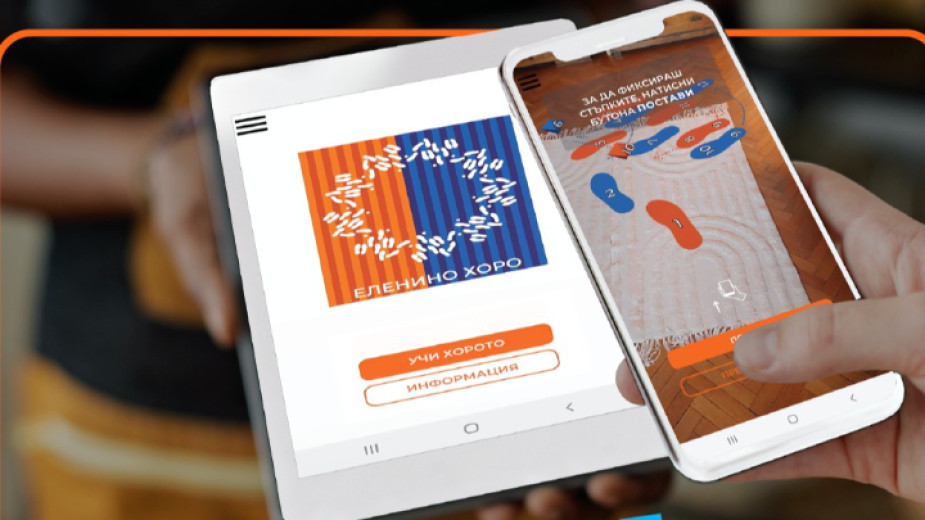Wherever you are in the world, as long as you have a smartphone and internet access, you can learn the intricate steps of the Bulgarian traditional horo dance. The new Taratanci game is free and it is based on augmented reality. "You just choose a choro, point your phone at the ground and follow the steps that appear on the floor on your phone screen," Ekaterina Petrova, co-founder of the Taratanci Foundation, told BNR-Stara Zagora in an interview.
"At the moment, we've uploaded four types of horo chain dance in the app̀ - Pravo horo, Graovsko, Raka and Elenino. It is active for android OS, but we will make the app available for download by users of other operating systems - Ms Petrova explains. The difference between Tataranci and other dance tutorials is the augmented reality - one can learn how to dance at home in the living room or in the park, for example. All you need to do is follow the steps. There are also voice commands to guide you. The game is a lot of fun and very creative."
It all started in 2014, when a handful of young Bulgarians decided to create a method for graphically depicting the steps of Bulgarian folk dances. Ekaterina Petrova remembers:
"Then someone had the idea to go to the nearest park and draw on the asphalt with chalk the steps of one of the easiest dances - the Chichovoto ("Uncle's horo"). We invited passers-by to try it and they began trying the steps, having great fun. So we decided to turn Taratantsi into an organization aimed at promoting Bulgarian folk dances in a new way."
Last summer, with the support of the National Culture Fund, the Taratantsi team embarked on a long journey through Bulgaria, visiting all the ethnographic regions. "We work with local choreographers and dance artists. They dip their feet in paint and as they dance they step on white patches, thus leaving footprints of the steps of the horo - Ekaterina Petrova says. - We travelled more than 7000 km across Bulgaria and took the footprints of another 80 horo dances. This way we already have a big database with footprints, which we are currently digitizing, and will be ready in a month. But we want to continue this work because there are an awful lot of Bulgarian horo dances - probably over 500, we don't know the exact number. And many of them are danced and known only by the older people in small hard-to-reach places. When these people are gone, the dance steps will be lost forever, if they are not documented for generations to come," Ekaterina Petrova concluded.
More about the magic of Bulgarian folk dances:
Compiled by Veneta Nikolova /based on an interview by Poli Guncheva from BNR- Stara Zagora/
English version: Elizabeth RadkovaLove blooms with renewed vigour every year on 14 February! Valentine's Day is increasingly being celebrated in Bulgaria as a holiday that inspires lovers to share beautiful moments together. Traditions include the exchange of cards, gifts and romantic..
From February 14 to 16, an event under the motto "Love and Wine" will allow Sofia residents and guests of the city to combine the Bulgarian holiday of wine Trifon Zarezan with Valentine's Day. It will be held on the pedestrian zone..
World Radio Day - 13 February, this year is dedicated to climate change. The choice is no coincidence—2025 has been identified by the Paris Agreement as a crucial year for humanity to achieve its long-term goal of limiting global warming to a maximum of..
Easter 2020 went down in history with two things. The first was the state of emergency, introduced due to the Covid-19 pandemic that..
152 years after Bulgaria lost its beloved son and advocate for a free, independent and tolerant state – Vasil Levski, his personality continues to excite..
152 years after the death of the Apostle of Freedom, the personality of Vasil Levski continues to excite Bulgarians, regardless of whether they are in the..

+359 2 9336 661
